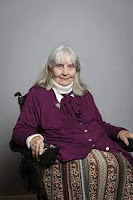Disabled members of the House of Lords speak out against assisted suicide amendment.
Alex Schadenberg
Executive Director, Euthanasia Prevention Coalition
UK House of Lords rejects push to legalize assisted suicide (Link)
On March 16, the House of Lords (UK) rejected an amendment to the Health and Care Bill – which would have obliged the UK Government to bring forward an assisted suicide bill within 12 months – by 179 votes to 145. During that debate, members of the House of Lords with disabilities carried the debate.
 |
| Baroness Campbell |
As reported by John Spring for the Disability News Service, Baroness Jane Campbell spoke against the amendment:
Baroness Campbell, who made a rare appearance in person in the Lords to speak against the amendment, following months of contributing virtually as she shielded from the pandemic, told fellow peers that opening the door to legalisation “would be a monumental change in the criminal law with potentially lethal consequences”.
using the health and care bill to “force the government’s hand” was “a blatant manipulation of the parliamentary process” and set “a dangerous precedent and should be resisted”.
 |
| Baroness Grey-Thompson |
Spring reported the comments by Baroness Tanni Grey-Thompson who said
hundreds of people – from both sides of the argument – had written to her about the amendment, which would – if passed – “fundamentally change the political and societal landscape for disabled people”.
“If people have not read it, they should look at the article by… Lord Shinkwin this weekend about how disabled people are encouraged to think that they would be better off dead than live with an impairment.
“Even in this chamber, we hear about things such as incapacity and incontinence and all the things that people fear.
“I push back on that, and I push back on the view that public opinion is overwhelmingly in support of this.”
 |
| Baroness Masham |
Spring then reported the comments by Baroness Masham who said
many disabled and older people were frightened by the prospect of legalised assisted suicide.
“Many vulnerable people feel that, if the assisted dying law is changed, they could be pressured into assisted dying because they feel that they are a nuisance and because they need looking after.
“Whatever… Lord Forsyth says, this bill should be about care, not killing. There should be compassion and palliative care for all those people who need it.”
 |
| Lord Shinkwin |
Spring finally reported the comments by Lord Shinkwin told fellow peers:
“If this amendment were passed tonight, I firmly believe that in years to come, we would look back and say that today – 16 March 2022 – was a pivotal moment.”
He described how he had been rushed to hospital seven weeks ago for an urgent blood transfusion, and had experienced “unbelievable pain”, helplessness and an “acute sense of vulnerability”.
“If the amendment were passed, would I have felt any safer? Would I have felt any less vulnerable as I lay in agony only seven weeks ago?
“The answer is unquestionably no.
“In the culture to which this amendment would inexorably give rise, with its nuanced assumption that my impaired quality of life somehow made my life less worth living, would I still be here? I do not know.”
Spring also reported that Baroness Brinton spoke in favour of the assisted suicide amendment.
Not Dead Yet UK and their allies have built a fairly cohesive group within the House of Commons and the House of Lords in the UK. I congratulate their actions and their willingness to make sure that their position is heard.





No comments:
Post a Comment